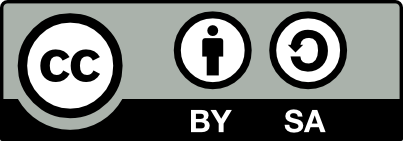Zgodność internetowych systemów sprzedaży polskich regionalnych przewoźników kolejowych z rozporządzeniem Parlamentu Europejskiego i Rady (UE) 2021/782 w aspekcie obowiązku informowania o najniższych opłatach za przewóz
Artykuł w czasopiśmie
MNiSW
140
Lista 2023
| Status: | |
| Warianty tytułu: |
Conformance of the internet
sales systems of polish regional
rail carriers with regulation (EU)
2021/782 of the European Parliament
and of the council in the aspect
of obligation of providing
information about the minimal
fares
|
| Autorzy: | Kowalik Przemysław |
| Dyscypliny: | |
| Aby zobaczyć szczegóły należy się zalogować. | |
| Rok wydania: | 2023 |
| Wersja dokumentu: | Drukowana | Elektroniczna |
| Język: | polski |
| Numer czasopisma: | 5 |
| Wolumen/Tom: | 54 |
| Strony: | 564 - 578 |
| Bazy: | CEJSH | CEEOL | Index Copernicus | UlrichsWeb | Arianta | DOAJ | EBSCO | CEON |
| Efekt badań statutowych | NIE |
| Materiał konferencyjny: | NIE |
| Publikacja OA: | TAK |
| Licencja: | |
| Sposób udostępnienia: | Otwarte czasopismo |
| Wersja tekstu: | Ostateczna wersja opublikowana |
| Czas opublikowania: | W momencie opublikowania |
| Data opublikowania w OA: | 18 grudnia 2023 |
| Abstrakty: | polski | angielski |
| Przedmiotem opracowania jest zbadanie funkcjonowania internetowych systemów sprzedaży polskich regionalnych przewoźników kolejowych w zakresie obowiązku informowania o najniższych dostępnych cenach przejazdu wynikającego z rozporzą- dzenia Parlamentu Europejskiego i Rady (UE) 2021/782. Z powodu skomplikowanej struktury taryf stosowanych przez przewoźników mogą bowiem wystąpić przypadki, w których najtańszy przejazd na danej trasie może wymagać wykonania zakupu niestandardowego: zakupu więcej niż jednego biletu lub też biletu na trasę inną niż ta, która faktycznie będzie przejechana. Zbadano strukturę taryf przewoźników oraz działanie systemów sprzedaży pod kątem obsługi wspomnianych wyżej niestandardowych zakupów biletów. Wyniki badań pokazały, że systemy sprzedażowe większości przewoźników nie zapewniają obsługi wyżej wspomnianych niestandardowych zakupów poprzez automatycznie wygenerowaną ofertę. Niemniej jednak taki zakup jest technicznie możliwy, ale wyłącznie poprzez samodzielne żądanie użytkownika. Jako wnioski z badań sformułowano postulaty de lege ferenda odnośnie doprecyzowania samego przepisu o obowiązku informowania o najniższych kosztach zawartego w rozporządzeniu, jak również zasad działania systemów sprzedażowych oraz tworzenia taryf przewozowych. | |
| The subject of the study is to examine the functioning of the internet sales systems of Polish regional railway carriers with regard to the obligation to inform about the lowest available fare under Regulation (EU) 2021/782 of the European Parliament and of the Council. Due to the complexity of the fare structure used by carriers, there may be cases in which the cheapest fare on a given route may require making a ‚non-standard’ purchase: purchasing more than one ticket or a ticket for a route different from the one that will actually be travelled. The fare structure of carriers and the operation of sales systems to support the abovementioned non-standard ticket purchases were examined. The results of the research showed that the sales systems of most carriers do not support the abovementioned ‚non-standard’ purchases through an automatically generated offer. Nevertheless, such a purchase is technically possible, but only through a user’s own request. As conclusions from the study, de lege ferendapostulates were formulated regarding the clarification of the very provision on the obligation to inform about the lowest cost contained in the Regulation, as well as the rules for the operation of sales systems and the creation of transport tariffs. |

